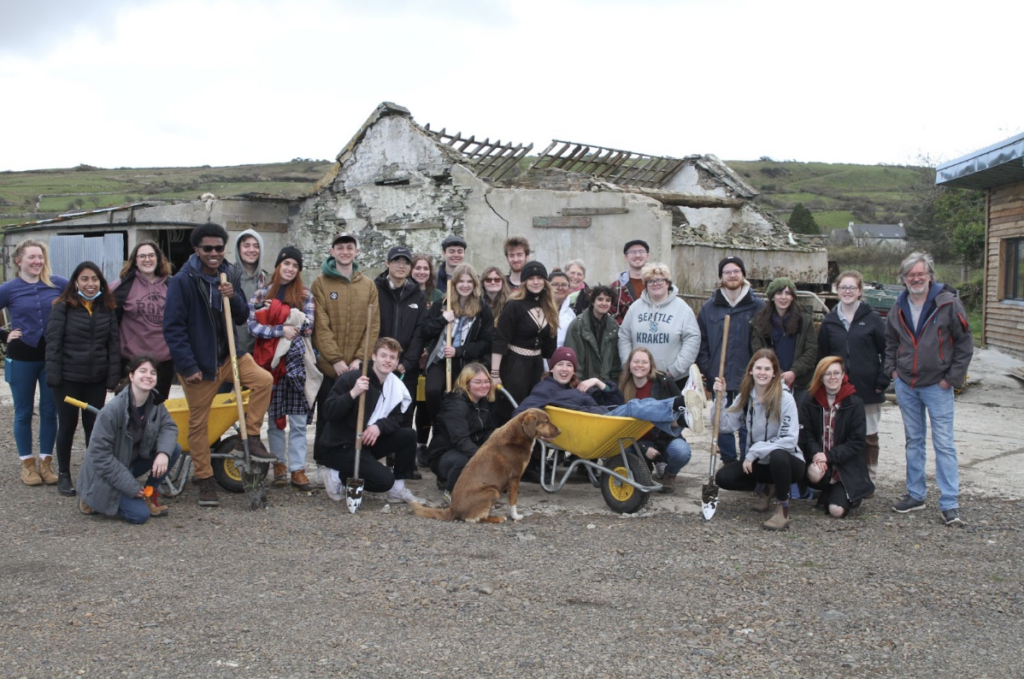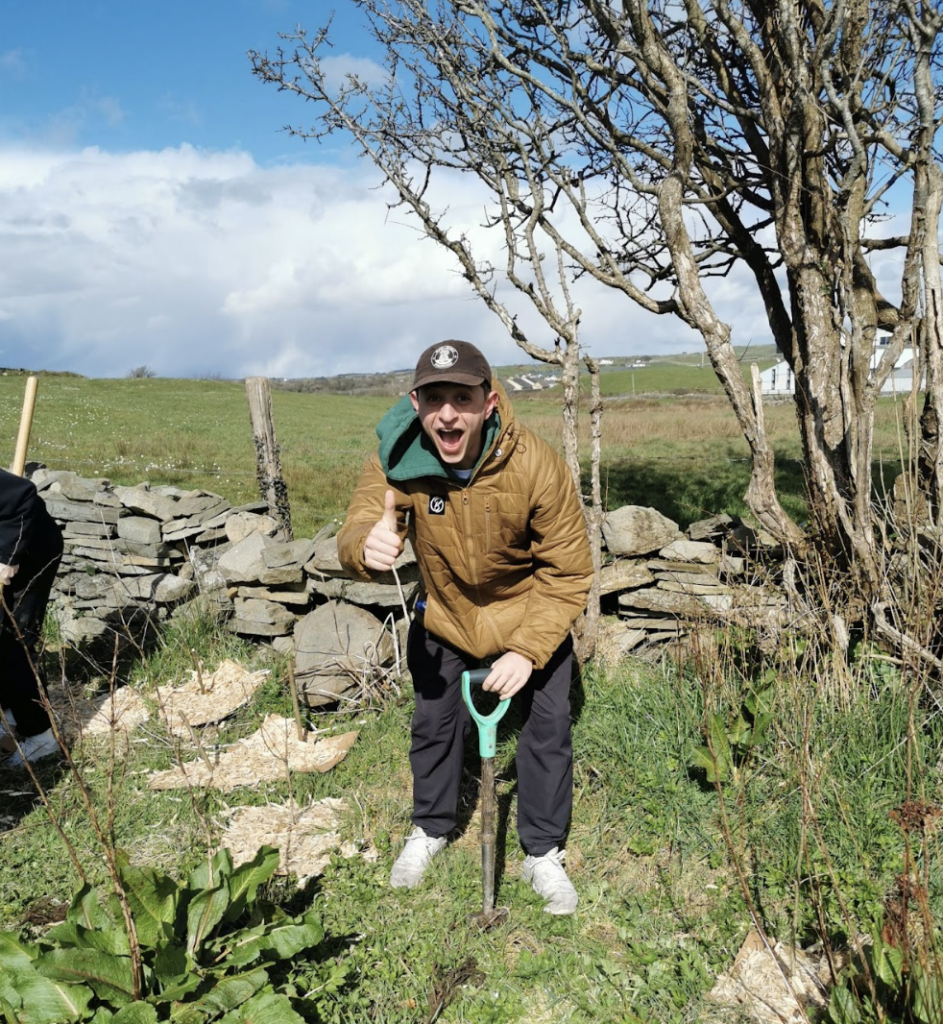How Champlain campuses are developing sustainable efforts across the world.
Studying abroad in Dublin is a naturally carbon-intensive activity as students fly to Ireland (and back) for their semester. While there are massive personal, academic, and professional benefits to studying abroad, there’s no doubt that transatlantic flights contribute to a changing climate.
The carbon footprint from a single flight is so high that one trip by plane can have the same carbon emissions output as a year of using a car, according to the David Suzuki Foundation. A roundtrip flight from Burlington to Dublin emits a carbon footprint of 1.6 tons of CO2 per passenger.
Knowing the impact of their travels, Champlain College Dublin students took an opportunity to reduce their carbon footprint and contribute to local sustainability efforts in early April this year. The college partnered with Hometree, a charity based in County Clare on the west coast of Ireland. Hometree’s mission is to establish and conserve permanent native woodland in Ireland and encourage land regeneration and biodiversity through afforestation, restoration, and education. Students learned about the climate impact of studying abroad and landscape rewilding.
According to Rewilding Europe, rewilding focuses on letting nature take care of itself, enabling natural processes to shape land and sea, repairing damaged ecosystems, and restoring degraded landscapes. Through rewilding, wildlife’s natural rhythms create wilder, more biodiverse habitats.
Staff members on the Dublin campus, along with Environmental Studies and Policy major Lauren Brown ’22 and Management and Innovation major Sarah Lancaster ’22, wanted to make study abroad more sustainable and used this opportunity to teach students about ecoliteracy, landscape, and the climate crisis. This didn’t leave out former students, though. This initiative was funded in part from Dublin alumni donations during last year’s Giving Day.


Upon arrival, the group of 30 students and staff were greeted by Matt, Meadhbh, and Grace from Hometree, as well as Conrad, the wonderful Hometree dog. Once inside Hometree’s new ecologically friendly home base, the organization welcomed Dublin staff and students with wonderful cakes and much needed coffee.
The group began a discussion, exploring their connections to nature. The group then split in two, with one group exploring with Meadhbh on an ecological tour of the property, and the other beginning to plant trees. After about an hour, the groups switched, and within three hours, the group had planted 300 saplings of varying native species including oak, alder, and willow. Hometree will continue to nurture and protect these trees into the future, and ensure they become a part of the ongoing rewilding in this part of the country.
Computer Networking & Cybersecurity major Jahseem Maxwell ‘23 thought this process was a great way to improve their carbon footprint.
“Actively doing the work made it much more meaningful than just paying for offsets,” he said. “What an exhilarating experience.”
Filmmaking major Avery Desrosiers ‘23 thought they would just be planting trees, but found much more out of the experience.
“We learned about other ecosystems such as wetlands and grasslands, and how climate change interacts with landscape,” Desrosiers said. “It was also a great social and bonding experience for the group.”
Ireland is the most deforested country in Europe and has only 11 percent of its land cover as forest. Much of the existing forest is composed of managed forests in which non-native species are planted for future harvesting. The rewilding of the land through afforestation using native species enhances biodiversity, land and soil regeneration, and sequesters carbon.


Champlain Dublin Director and Professor Dr. Stephen Robinson explained that with climate action, it’s better to not burn fossil fuels in the first place. But, sometimes this is unavoidable, and the next best thing to do is offset your carbon emissions through activities such as tree planting.
Robinson and other staff hope that Dublin students return home with a deep understanding of Ireland, and appreciation of nature and wilderness, and the need to act sustainably in their ongoing lives.
Graphic Design & Visual Communication major Brenna Cook ‘23 appreciated leaving a positive footprint on Ireland.
“[The experience] added a huge amount to the Dublin program, knowing that there would be trees planted by this group that would be here growing and thriving after we leave Ireland,” she said.
The students’ efforts in Ireland can be brought back to Burlington with them; Champlain has rejoined the national organization The Association for the Advancement of Sustainability in Higher Education. Students and faculty can access member-only resources on AASHE’s website, as well as discounts on webinars and conferences.
Whether in Dublin, Montreal, Burlington, or elsewhere, Champlain students are using their opportunities to make a sustainable difference.